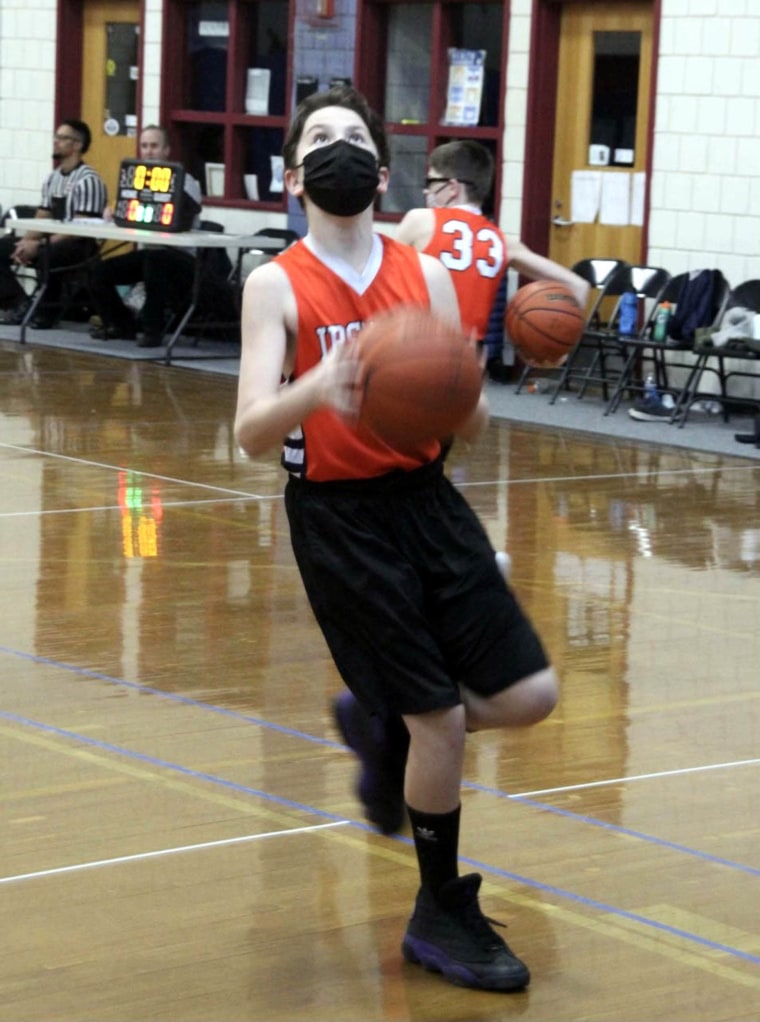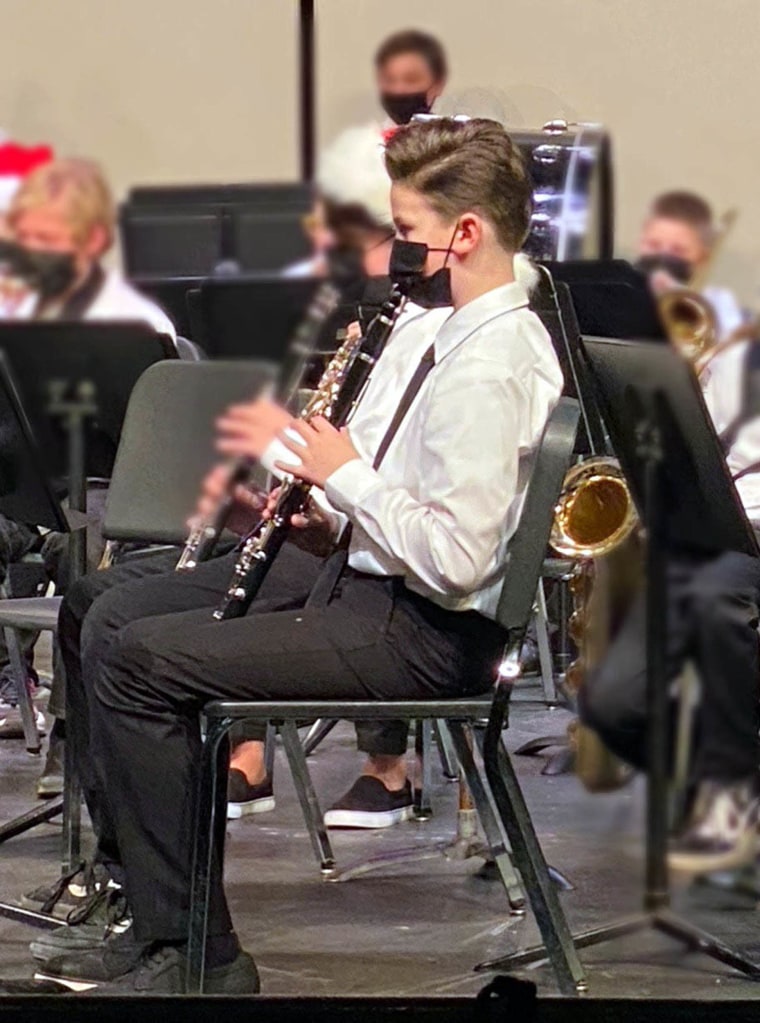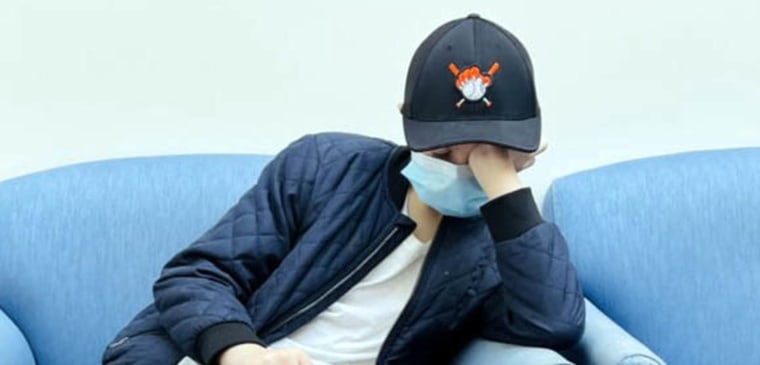At first 11-year-old Jack Coviello’s COVID-19 seemed to be the mild version that health experts had assured parents was typical. But a week after Jack’s initial symptoms cleared, a crushing fatigue set in and the sixth grader was sleeping 20 hours a day. Other distressing symptoms soon arrived, like dizziness, joint pain and blurred vision.
“At first, we were scared,” says Jack’s mother Kelli, a 52-year-old elementary school administrator from Ipswich, Ma. “Then, I think we were in denial. I think we were just hoping each week, each day, each hour, and each minute that it was going to be the moment that he was going to turn a corner.”
Three months later when Jack’s symptoms hadn’t abated, his pediatrician diagnosed him with long COVID, a condition that is as poorly understood as it is debilitating. The doctor referred the family to Boston Children’s Hospital which had a multidisciplinary clinic for kids like Jack with long COVID.
Jack was so fatigued he had trouble putting in a full day at school. He had to give up his favorite sport, basketball, and playing the clarinet because he didn’t have the energy to do either.
His parents are devastated, especially since they had opted not to vaccinate him, having heard that in kids “it’s nothing more than mild case of the flu,” Kelli Coviello says.
As it turns out, Jack’s situation isn’t that unusual. Studies have shown that between 0.8 to 27% of children who test positive for the SARS-CoV-2 virus go on to develop long COVID. That may not seem like a lot, but with an estimated 58 million American kids infected, it turns out that the actual number of kids with long COVID is staggering, says Dr. Alicia Johnston, co-director of Boston Children’s post-COVID clinic.

Just doing the math, it means that anywhere from half a million to 15 million children in the U.S could have long COVID. Unfortunately, there are only a dozen or so specialized multidisciplinary clinics in the country focusing on kids with long COVID, Johnston says.
“We initially thought we would be able to get children in within two weeks, now we’re booking four to six months out,” Johnston says. “It’s heartbreaking. When you tell parents how long it will be they cry and ask ‘what do I do for my kid for the next six months?’”
Jack’s first visit to the multidisciplinary clinic was in April and he had a follow-up in May. He’s waiting for tests that may shed more light on his symptoms and treatments that might help. In the meantime, he’s tried to play basketball and baseball, “but if he plays he sleeps for two days,” his mom says.
That’s pretty typical, Johnston says. “Kids will report going to school on a good day to try to take their lives back,” she adds. “Then the next day they’re flat on their backs. They talk about paying for having a good day. It’s a saw tooth pattern with one good day and then two bad days.”
Because kids don’t look sick “people at school, coaches and family members may not understand what is going on with the child,” says Dr. Katelyn Krivchenia, an assistant professor of pediatrics and one of the providers who work at the post-COVID clinic at Nationwide Children’s Hospital in Columbus, Ohio.
We don’t know what makes them better, so we just borrow from the adult literature, putting Band-Aids on the symptoms while giving the body time to heal.”
Dr. Katelyn Krivchenia
It’s hard to know how to treat these kids because “honestly there is virtually nothing published on long haul symptoms in kids,” Krivchenia said. “We don’t know what makes them better, so we just borrow from the adult literature, putting Band-Aids on the symptoms while giving the body time to heal.”
Children with long COVID often feel dizzy when they stand up because the system that controls automatic functions like breathing, heart rate and blood pressure doesn’t work right, Krivchenia said. When they stand up, the blood vessels don’t function properly and not enough blood is pumped to the heart. To make up for that, the heart pumps really fast.
What can help with that symptom is for kids to drink lots of water, consume really salty snacks and get up slowly, Krivchenia says.
Related: COVID-19 vaccine for kids under 5: What parents need to know about safety, efficacy
Although some of the children being treated at Nationwide’s post-COVID clinic were vaccinated before getting COVID-19 and long-COVID, most were not, Krivchenia says. “I think about the kids who can’t finish the year and can’t graduate,” she adds. “Or the ones who were going to a national track meet and now can’t run a mile. It’s devastating. There’s a lot of guilt families feel having made the decision not to vaccinate.”
For some kids with long COVID, vaccination after the fact can lead to some improvements in fatigue and brain fog, Krivchenia said. Unfortunately the vaccination didn’t help Jack. Still, Jack is sleeping a little less now — 13 to 15 hours a day, Kelli Coviello says, which gives the family a little more hope.
Johnston says she’s seen a number of kids get better. “That’s encouraging,” she says. “We’re much more hopeful now than we were early in the process. We’ve seen some kids make really significant strides in three to six months. Some have been struggling 18 months before they turn the corner. That time frame can be tough on an adolescent. If I say I have confidence you will recover in 12 to 18 months, that can seem like an eternity for these kids.”
Related:


